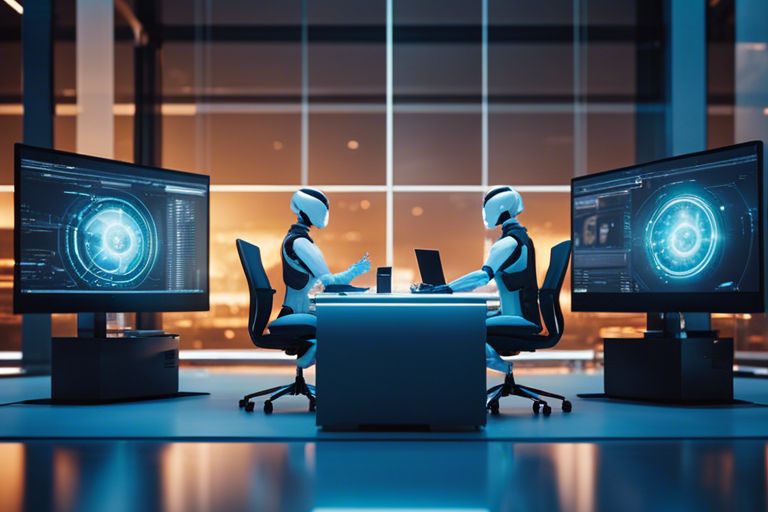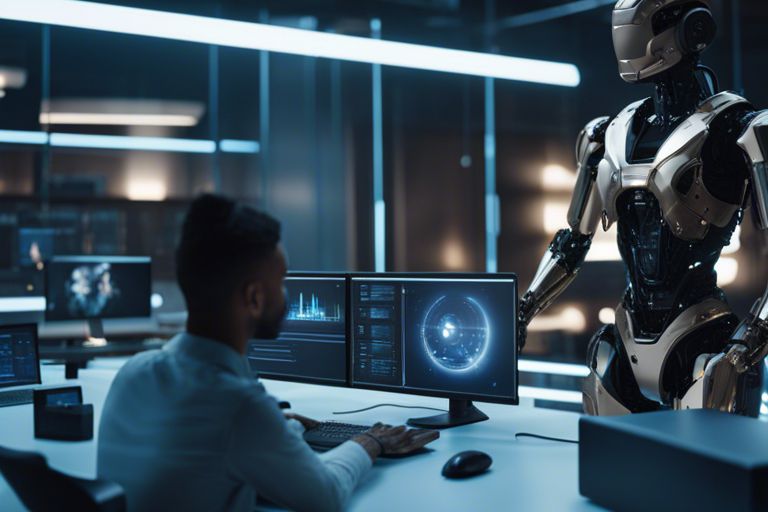Are You Utilizing Cutting-Edge IT Security Strategies For Maximum Protection?
Over recent years, the cyber threat landscape has evolved rapidly, making it crucial for organizations to utilize...

Many industries are experiencing a significant shift in the way work is being done, thanks to the integration of Artificial Intelligence (AI) in automation processes. This technology is not only streamlining tasks but also raising concerns about the future of the workforce. From increased efficiency and productivity to potential job displacement, the impact of AI on automation is undeniable. Understanding this transformation is crucial for both employers and employees as they navigate the evolving landscape of work.

Obviously, the integration of Artificial Intelligence (AI) in various industries is reshaping job roles and responsibilities. Automation is changing the landscape of work, requiring organizations to rethink the traditional functions of employees.
Manual tasks that are repetitive and time-consuming are being phased out as AI-driven systems take over. These systems can process large amounts of data at a speed and accuracy that surpass human capabilities. This transition allows employees to focus on more strategic and creative aspects of their jobs, leading to increased productivity and job satisfaction.
Moreover, AI can handle complex calculations and analyses, enabling businesses to make more informed decisions quickly. By offloading mundane tasks to AI, employees can dedicate their time to tasks that require critical thinking and problem-solving skills, ultimately enhancing innovation within the organization.
Upskilling the workforce is imperative to prepare employees for the AI-driven era. It involves providing training and education to help them adapt to the changing job requirements and utilize AI tools effectively. Continuous learning and development are crucial to stay competitive in an increasingly automated workforce.
Reinventing job roles through upskilling not only future-proofs employees’ careers but also empowers them to leverage AI for improved efficiency and performance. Companies that invest in upskilling programs foster a culture of adaptability and growth, ensuring their workforce remains valuable in the AI revolution.
Clearly, artificial intelligence (AI) has been a game-changer in revolutionizing automation, especially when it comes to decision-making processes in businesses. The ability of AI to analyze vast amounts of data and make informed decisions in real-time has significantly impacted how organizations operate and strategize for the future.
An important aspect of AI in decision-making is its capability to enable data-driven management. By utilizing advanced algorithms and machine learning techniques, AI can sift through massive datasets to identify patterns, trends, and correlations that may not be apparent to human decision-makers. This empowers businesses to make decisions based on objective data rather than intuition or guesswork, leading to more accurate and informed choices.
Management can harness the power of AI to enhance business strategies through predictive analytics. By leveraging historical data and applying algorithms to forecast future trends and outcomes, organizations can anticipate market shifts, customer preferences, and potential risks. This proactive approach allows companies to optimize their operations, mitigate risks, and capitalize on emerging opportunities, giving them a competitive edge in the fast-paced business landscape.
Analytics plays a crucial role in transforming raw data into actionable insights that drive strategic decision-making. With the ability to process and interpret vast amounts of information at unprecedented speeds, AI enables businesses to make agile decisions and adapt quickly to changing market dynamics. By incorporating predictive analytics into their workflows, organizations can stay ahead of the curve and position themselves for sustained success in the digital age.

Ethical considerations regarding the implementation of AI in automation revolve around the balance between efficiency and employment. While AI technologies can streamline processes, increase productivity, and cut costs for businesses, there is a growing concern about the potential impact on human jobs. As more tasks become automated, workers may face displacement and job insecurity. It is crucial for organizations to carefully consider the ethical implications of AI-driven automation and take proactive steps to minimize negative effects on their workforce.
To address the ethical concerns surrounding privacy and security in an automated workplace, organizations must prioritize data protection and access control measures. AI systems gather vast amounts of sensitive information, raising questions about who has access to this data and how it is used. It is vital for companies to implement robust cybersecurity protocols and ensure transparency in their data collection and usage practices to safeguard employee privacy and prevent security breaches.
Between the constant quest for efficiency and the ethical responsibilities towards employees lies the challenge of balancing the benefits of AI automation with the protection of individual rights and job security. Organizations that navigate this delicate balance with foresight and integrity will not only harness the full potential of AI technology but also uphold ethical standards in the future of work.
Unlike past industrial revolutions, the rise of Artificial Intelligence (AI) is poised to transform the workforce in ways we have never seen before. As technology continues to advance at an exponential rate, the future of work is being shaped by the expanding horizons of AI-driven automation.
Impact: Emerging technologies such as machine learning, robotics, and natural language processing are revolutionizing the way tasks are performed in various industries. While these advancements hold the promise of increased efficiency and productivity, they also raise concerns about the displacement of human workers. Jobs that are routine or repetitive in nature are particularly at risk of being automated, leading to a shift in the skills and roles demanded in the job market.
The adoption of AI-driven automation is expected to create new job opportunities in fields such as data science, cybersecurity, and AI ethics. However, to harness the potential benefits of these technologies, organizations and policymakers must prioritize upskilling and reskilling initiatives to ensure that workers are equipped to thrive in the changing landscape of work.
Work: Governments play a crucial role in shaping the future of work by implementing policies that support the responsible deployment of AI technologies. Regulations around data privacy, algorithm transparency, and ethical AI practices are crucial to mitigate potential risks and ensure that automation benefits society as a whole. Furthermore, education systems must adapt to equip individuals with the necessary skills to thrive in a digital economy.
Expanding: Collaboration between governments, educational institutions, and industry stakeholders is crucial to proactively address the challenges and opportunities presented by AI-driven automation. By fostering a culture of lifelong learning and innovation, we can navigate the evolving landscape of work and harness the transformative power of AI for the betterment of society.
With these considerations in mind, it is evident that AI and automation are significantly reshaping the future of work. As technology continues to advance, organizations must adapt to remain competitive and efficient. Embracing these changes and leveraging the capabilities of AI can lead to increased productivity, enhanced decision-making, and improved customer experiences. It is crucial for businesses to be proactive in integrating AI into their operations to thrive in the evolving landscape of work.
AI and Automation Are Reshaping the Future of Work
A: AI plays a crucial role in revolutionizing automation by enabling machines to learn from data, adapt to new inputs, and perform tasks that typically require human intelligence. This transformation is reshaping industries and redefining work processes.
A: AI can optimize productivity and efficiency in the workplace by automating repetitive tasks, analyzing large datasets to provide actionable insights, and improving decision-making processes. This allows organizations to streamline operations and allocate resources more effectively.
A: The potential impacts of AI on the future of work include job displacement in certain sectors, the emergence of new roles that require AI skills, and an increased focus on upskilling and reskilling the workforce to adapt to a rapidly changing technological landscape. It is necessary for organizations to embrace AI responsibly and ethically to maximize its benefits while mitigating potential risks.
Over recent years, the cyber threat landscape has evolved rapidly, making it crucial for organizations to utilize...
Most businesses today face advanced and sophisticated cyber threats that can potentially jeopardize their data...